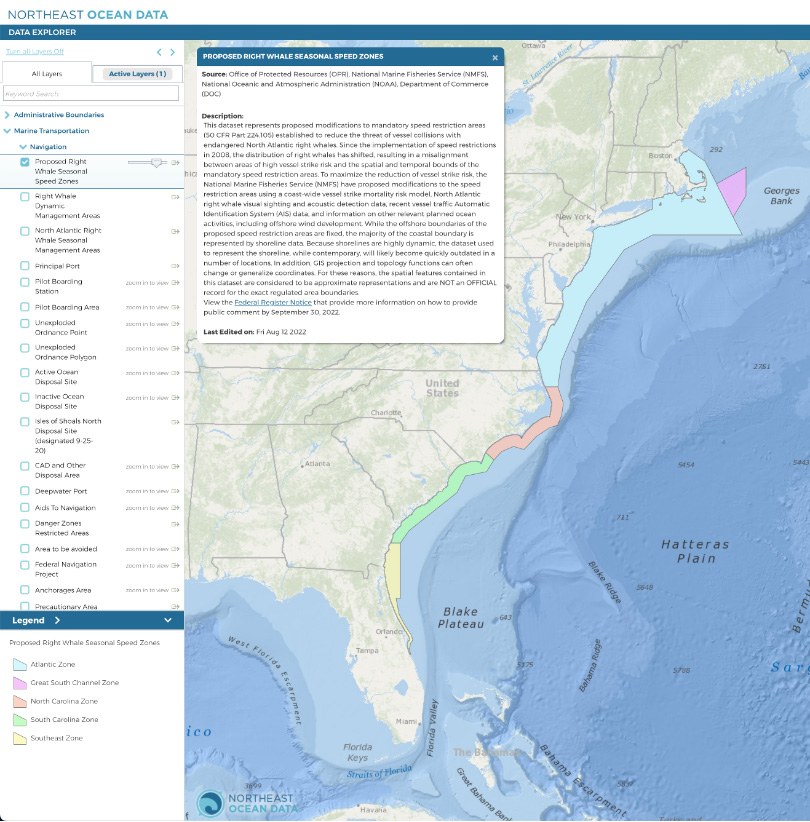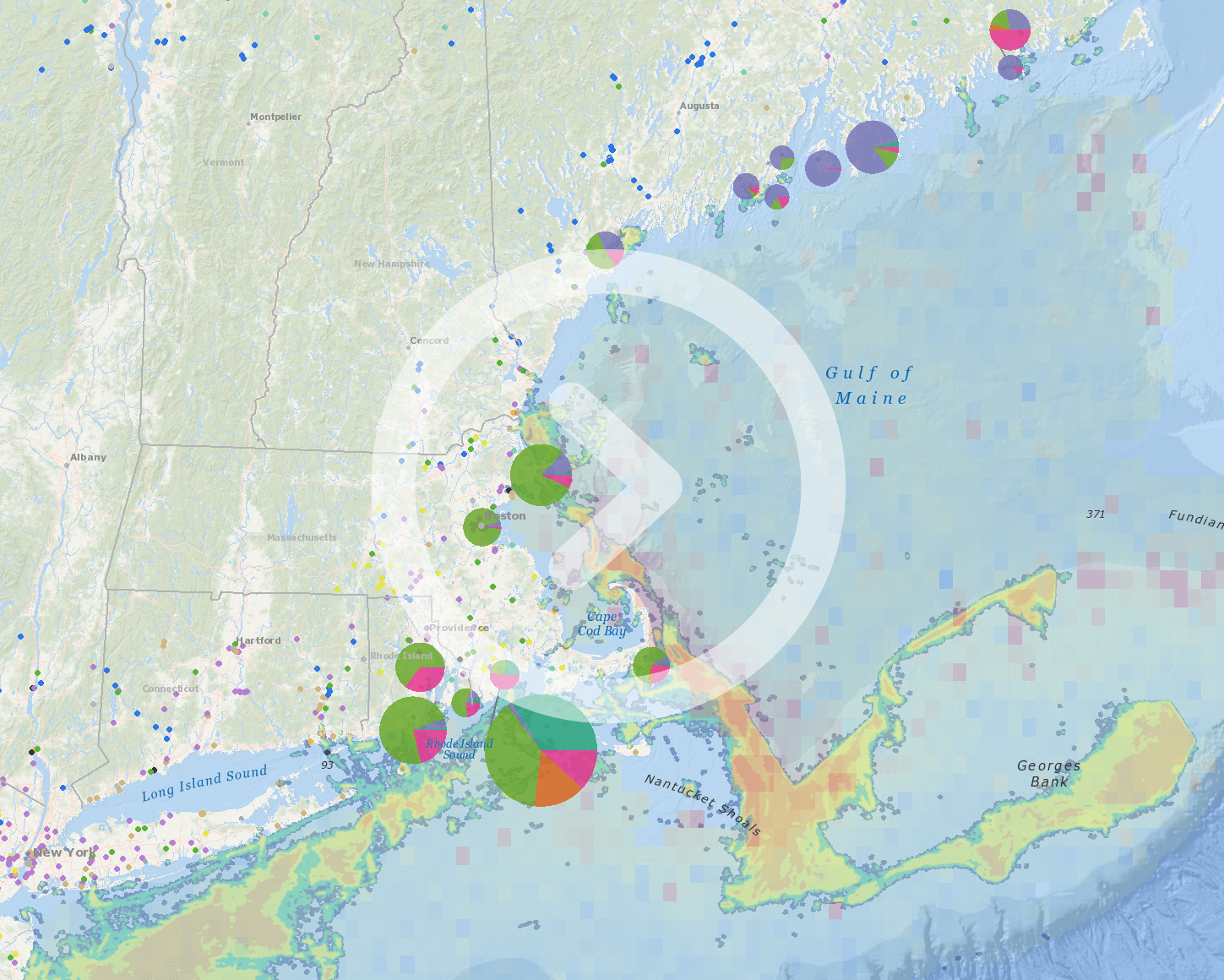NOAA Fisheries is proposing changes to the North Atlantic right whale (Eubalaena glacialis) vessel speed regulations to further reduce the likelihood of mortalities and serious injuries to endangered right whales from vessel collisions, which are a leading cause of the species’ decline and a primary factor in an ongoing Unusual Mortality Event. Public comments on the proposed rule should be submitted by September 30, 2022, by following the instructions in the Federal Register Notice.
Portal users can now view maps of the proposed Seasonal Speed Zones in the Data Explorer under Marine Transportation > Navigation. Other North Atlantic right whale management areas layers are available in this same category, and these layers can be overlaid with any other layer in the Data Explorer, including commercial traffic, fishing vessel activity, offshore wind planning and leasing areas, and marine life distribution data.
Screenshot of Data Explorer map showing 2022 Proposed Seasonal Speed Zones
The proposed rule would:
- Modify the spatial and temporal boundaries of current speed restriction areas, currently referred to as Seasonal Management Areas (SMAs)
- Include most vessels greater than or equal to 35 ft (10.7 m) and less than 65 ft (19.8 m) in length in the vessel size class subject to speed restriction
- Dreate a Dynamic Speed Zone framework to implement mandatory speed restrictions when whales are known to be present outside active SMAs
- Update the speed rule’s safety deviation provision
Changes to the speed regulations are proposed to reduce vessel strike risk based on a coast wide collision mortality risk assessment and updated information on right whale distribution, vessel traffic patterns, and vessel strike mortality and serious injury events. Changes to the existing vessel speed regulation are essential to stabilize the ongoing right whale population decline and prevent the species’ extinction.
Below are links to the 2022 Proposed Rule, a history of vessel speed regulations, and relevant supporting documents. NOAA Fisheries hosted three public informational webinars in August to answer questions about the proposed rule. A recording of the August 16, 2022 webinar can be found here.
- Interactive Data Explorer map of 2022 Proposed Seasonal Speed Zones
- 2022 Proposed Rule (87 FR 46921; August 1, 2022)
- Static NOAA Fisheries Map of 2022 Proposed Seasonal Speed Zones and current Seasonal Management Areas
- GIS Data for Proposed Seasonal Speed Zones


